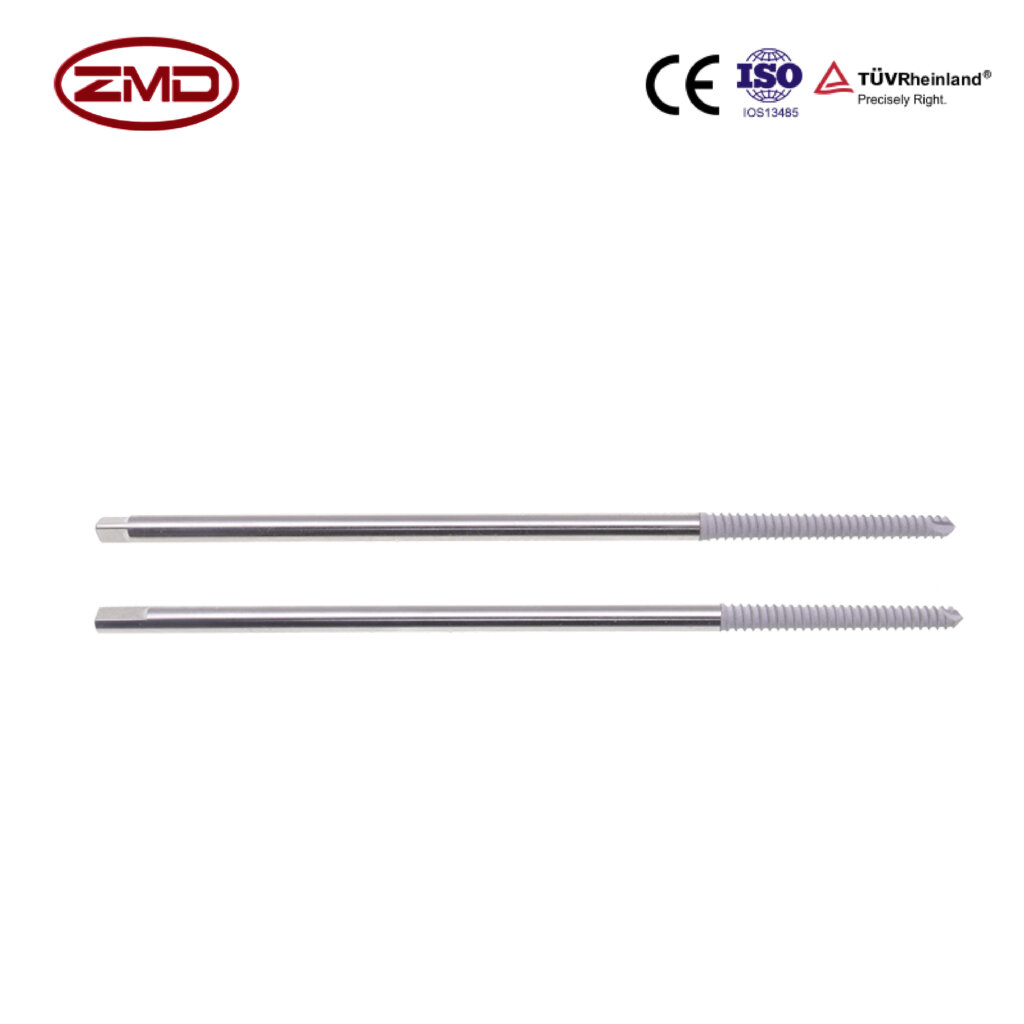
- Home
- About Us
- Products
- Trauma Internal Fixation System
- Spinal Internal Fixation System
- External Fixation
- Artificial Implants System
- Sports Medicine
- Power tools
- VSD System
- Instruments
- Medical supplies
- Blog
- Personnel Profile
- Contact Us
Phone line
| Code | Product name | Specification | QTY(PC) |
| 60110-1 | Depth gauge | 50mm | 1 |
Key features and benefits of the depth gauge
Precision and Accuracy: Our depth gauges are meticulously engineered to deliver exceptional precision and accuracy in every measurement. Equipped with advanced calibration techniques and high-quality components, our products ensure reliable results, even in the most demanding environments.
Versatility: Designed to accommodate a wide range of applications, our depth gauges are suitable for measuring various part sizes and shapes. Whether you’re working with small components or large assemblies, our products offer the versatility you need to achieve accurate measurements with ease.
Durability: Built to withstand the rigors of industrial use, our depth gauges are constructed from durable materials and feature robust designs. This ensures long-lasting performance and reliability, even in harsh conditions.
Ease of Use: Our depth gauges are designed with user-friendliness in mind. Intuitive interfaces, clear displays, and ergonomic designs make it easy for operators of all skill levels to obtain accurate measurements quickly and efficiently.
Advanced Features: Equipped with cutting-edge technology, our depth gauges offer a variety of advanced features to enhance performance and functionality. From digital readouts and data logging capabilities to wireless connectivity and remote control options, our products provide the tools you need to optimize your measurement processes.
Indications for Depth Gauge Use
Depth gauges are essential tools for precision measurements in a wide range of industries, including manufacturing, engineering, and quality control. Here are some key indications for depth gauge use:
Machining and Manufacturing:
Quality Control and Inspection:
Assembly and Fabrication:
Research and Development:
By using depth gauges in these applications, you can ensure precise measurements, maintain quality standards, and improve overall product performance.
How Does The Depth Gauge Work
A depth gauge is a precision measuring instrument used to determine the depth of holes, slots, grooves, and other features on various components. Here’s a breakdown of how a depth gauge works:
FAQ
10 Common Questions and Answers About Depth Gauges
A depth gauge is a precision measuring instrument used to determine the depth of holes, slots, grooves, and other features on various components. It’s commonly used in manufacturing, engineering, quality control, and other industries where accurate depth measurements are essential.
A depth gauge typically consists of a base, a frame, a depth rod, a measuring scale, and a lock mechanism. The depth rod is adjusted to the desired depth, and then the anvil or contact point is brought into contact with the surface being measured. The measurement is read from the scale.
There are several types of depth gauges available, including:
When selecting a depth gauge, consider factors such as:
While primarily designed for depth measurements, some depth gauges can also be used for other applications, such as measuring step heights or checking parallelism. However, it’s essential to use the gauge according to its intended purpose for accurate results.
Regular calibration is crucial for ensuring the accuracy of a depth gauge. Follow the manufacturer’s instructions or consult a calibration laboratory to perform calibration using appropriate reference standards.
To maintain the accuracy and longevity of a depth gauge, follow these practices:
Some depth gauges are designed for use in harsh environments, such as industrial settings or outdoor conditions. These gauges may feature features like water resistance, dust resistance, or shock resistance.
While both depth gauges and dial indicators are used for precision measurements, they have different applications. A depth gauge is specifically designed for measuring depth, while a dial indicator can be used for various measurements, including displacement, runout, and vibration.
Depth gauges are used in a wide range of industries, including:
Oh yeah! I have to mention their payment options and discount offers, which are awesome! Those payment methods are as flexible as moving water and can be chosen freely according to our cash flow situation. And the frequent discounts, like a timely rain, have been moisturizing our financial statements time and again, and have had a rocket-like positive impact on our profits! With ZMD, I feel relaxed and at ease when it comes to purchasing!
Send us a message if you have any questions or request a quote. Our experts will give you a reply within 24 hours and help you select the right valve you want.
Book Now
If you are looking for professional orthopedic medical product solutions, don’t hesitate to contact us now!

We are an integrated manufacturer specializing in orthopedic medical industry, providing high quality and reliable orthopedic medical products to customers worldwide.
Copyright © 2024 ASK Project